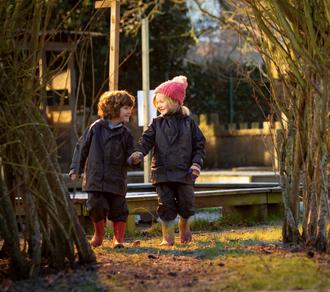




















Curriculum lies at the heart of education: it determines what children will know and what they will be able to go on to do. It includes what children learn in the classroom, and beyond, to prepare them for life in Modern Britain.

What do our pupils say about our curriculum?
“Spanish is really fun I enjoy learning how to say different names for animals. I used my Spanish language to talk to others when I went on holiday”
Year Two
“I love all of the subjects that I learn History is one of my favourites because I enjoy knowing what has happened in the past and how we have changed through time. I like comparing different eras. ”
Year Four
“I really love learning at St Gregory’s English is my favourite subject because I enjoy expanding my vocabulary I want to become a writer when I’m older. I like writing for different audiences and purposes. ”
Year Six
Our carefully-planned curriculum has been designed to give all pupils a strong foundation of knowledge, whilst fostering essential values like empathy, respect and responsibility; supporting their development into the leaders of tomorrow.
Ensuring exceptional outcomes, which evidence the progression of skills and knowledge for all children, in every curriculum area.
Implementing a robust framework which allows teachers to focus on adapting how to teach, in a way that meets the needs and challenges all learners, as opposed to what to teach.
Thoughtfully-planned and frequent enrichment of the curriculum, through: educational visits, in-school workshops with guest speakers, hands-on activities and extended learning opportunities.
At St. Gregory's, our curriculum is meticulously crafted and carefully sequenced to embed knowledge securely in pupils' long-term memories This enables them to confidently apply and expand upon their understanding. Every aspect of our curriculum is designed to promote progression; allowing children to build upon their existing knowledge and skills, while making connections with new concepts seamlessly. To support opportunities for revisiting prior learning and strengthen long-term memory retention, our curriculum employs a 3D approach.



The links within a given subject which ensure key concepts are encountered again and again For example: the substantive concept of ‘empire’ and how this is taught through many History units, across different year groups
These links are made within a year group, but across varying subjects, to ensure purposeful connections are made, where appropriate For example, in Year Six, pupils learn about buzzers during Science and apply this knowledge to make hand games within Design and Technology.
These links join concepts across both year groups and subjects. For example: Year Four study rainforests in Geography and then in Year 5, this concept is revisited when reading ‘The Explorer’ within English
The approach outlined above has been chosen because it aligns with the principles of cognitive science and is specifically tailored to the unique context and community of St. Gregory’s. It sets ambitious goals for all learners, whilst promoting inclusivity.
Developing effective learning behaviours in the classroom is essential for fostering an environment where our pupils can engage, thrive and achieve academic success At St Gregory’s, our curriculum is underpinned by our school learning behaviours. These behaviours are rooted in our school mission statement and are research-informed; derived from Unicef’s ‘12 Transferrable Skills’ We ensure that throughout all teaching and learning at St Gregory’s, every pupil is provided with a range of opportunities to foster the development of transferable skills, including cognitive, social and emotional skills, which enable our children to continue lifelong learning and become active stewards.

do our pupils say about our Learning Behaviours?
“The learning behaviours are a helpful way for us to improve our attitude towards our learning and towards others”


“I like knowing that my name has been moved for showing a learning behaviour. This makes me feel proud and like a role-model”


At St Gregory’s, we love, learn and grow through our exciting and ambitious curriculum Our ‘Curriculum Drivers’ link our School Mission with the wider curriculum; they are the fundamental pillars that will help pupils to become successful members of society in the future
Our Curriculum Drivers are: respect, community, creativity, resilience and diversity The units that pupils study across all of the Foundation Subjects are linked to at least one of our Curriculum Drivers.Within our curriculum, children learn through contexts which are relevant, meaningful and underpinned by the Catholic Social Teachings
Subject Overviews are available on our school website These documents detail how each subject is taught at St Gregory’s. Long and medium term plans contain the key concepts (substantive and disciplinary) which are built over time, as well as connections between how each units fits in to the bigger picture of the curriculum Each subject also has a vocabulary progression document which outlines the vocabulary that will be taught and when.

Our ‘Curriculum Drivers’ are the motivation behind what we teach:
-We want all pupils at St Gregory’s to be respectful towards themselves, others and their surroundings
-We understand the importance of self-expression through being creative
-Pupils learn about their immediate environment and the wider world to progressively build on their understanding of their community Pupils regularly participate in local, national and international initiatives to help others.
-We teach pupils to become resilient individuals by providing learning environments where they feel comfortable to experiment, make mistakes and persevere on their way to success We build self-esteem to allow children to become increasingly confident when tackling challenges.
-We encourage pupils to explore their interests and show their talents, celebrating each other’s differences and the importance of understanding diversity, preparing them for life in Modern Britain
A Knowledge Organiser is a tool which we use as a key component for our learning in the the Foundation Subjects. They are designed to provide our pupils with key facts, vocabulary, concepts and ideas in a clear and concise format, linked to their unit of work, for example, Vikings in History. During lessons, our pupils refer to their Knowledge Organisers, which direct them to key concepts and vocabulary; aiding their learning Teachers provide pupils with meaningful opportunities to use their organisers, such as: for quizzing, self-assessment and retrieval tasks; increasing pupils’ independence.


Every lesson begins with an Anchor Task. These are an effective way to promote active learning and critical thinking, in addition to the key component: retrieving previous knowledge and skills from long term memory. Anchor Tasks are split into four parts:
Parts 1 and 2 focus on retrieval from previous lessons and topics; enabling our pupils to make links within their learning
Parts 3 and 4 provide an opportunity to grow deeper, feeling a sense of challenge and promoting higher level thinking, linked to a topic.




Teaching staff at our school are deeply committed to ensuring the highest quality of curriculum planning and implementation. To achieve this, teachers have engaged with a breadth of Effective Professional Development opportunities to develop a deep understanding of each unit’s intent, the progressive lesson objectives, and strategies for both scaffolding and stretching learning. Teachers use the Knowledge Organisers as benchmarks to guide their instructional planning, with our St. Gregory’s Foundation Subject Assessment Trackers aiding the seamless sequencing of learning; ensuring that pupils progress towards end of year expectations
Anchor Tasks are planned for the beginning of every lesson to support pupils with understanding how new learning integrates into the broader curriculum and previously taught concepts; emphasising the key concepts being cultivated.
Staff continually refine their subject knowledge through tailored Effective Professional Development sessions These are provided internally by Subject Leaders, through Our Lady of the Magnificat Trust Working Groups for each subject, and through external providers such as: Gateway Teaching Alliance, Warwickshire Local Authority and Origins Maths Hub.
This approach to planning and Effective Professional Development, along with the way our curriculum has been meticulously designed and sequenced, helps to close the attainment gap for disadvantaged pupils; ensuring every child achieves their full potential.
Available on Request:
Curriculum Intent Model for each subject, Foundation Subject Assessment Trackers and St. Gregory’s Effective Professional Development Calendar.
Following their completion of the National Professional Qualification in Leading Teaching, our teachers are highly-skilled in adapting lessons to ensure they cater to the diverse learning needs of our pupils.
For those children who need additional support and scaffolding, the teaching team use a range of techniques. These include: providing additional time to grasp concepts through pre-teaching, extended practice, using visual resources to support understanding, dual coding information, adapted tasks and the opportunity to work with an adult or peer(s). For those pupils who quickly understand a new concept, teachers and support staff provide consistent opportunities to deepen their thinking These challenge opportunities encourage critical thinking, creativity and independent exploration. Flexible lesson structures and episodic teaching enables pupils to access tasks at a pace and stage which meets their learning needs within each lesson.
All teaching and support staff have also engaged with Effective Professional Development led by our Trust’s Inclusion Lead, using the EEF’s self-scaffolding model (taken from Making the Best Use of Teaching Assistants)
We are deeply committed to providing an inclusive education that caters to the diverse needs of all our students, including those with Special Educational Needs and Disabilities (SEND). Our curriculum is thoughtfully adapted to ensure that pupils with SEND receive the support and accommodations necessary to thrive academically as well as socially.
We implement a Graduated Approach, which consists of four elements: Assess, Plan, Do, Review. This enables our Special Educational Needs Coordinator (SENCo) and teaching team to make judgements about the SEND status of a child and whether it needs to progress.
A collaborative approach to planning, which involves teachers, our SENCo and parents, ensures that each pupils’ individual needs are comprehensively addressed; leading to a more personalised and effective educational experience.
Responsive teaching at St Gregory’s involves teachers continuously adjusting instruction to ensure that all our pupils are actively engaged, challenged and supported in their learning. This dynamic approach allows teachers to be flexible: adapting their methods to the diverse ways which pupils learn and respond in the classroom.
Our key features include:
Learning Partners: pupils are encouraged to work together in pairs or small groups to help each other understand content; offering explanations in their own words and learning from each other.
Differentiation: this may include varying the level of difficulty, using different materials, or providing additional scaffolding, where needed, to support each pupil to meet learning outcomes
Formative Assessment: teachers use informal assessment methods, such as: questioning, observations, quizzes and student feedback to assess pupils’ understanding. Teachers use their formative assessments to adjust subsequent teaching strategies and provide targeted interventions.
Varied Learning Strategies: teachers employ a range of teaching methods, such as group work, learning partners, hands-on activities, and independent projects, to meet the needs of all learners
Active Pupil Engagement: teachers encourage active participation through discussions, collaborative learning, problem-solving tasks, and inquiry-based learning approaches.



Alphabet Knowledge
Harvest: in Year Six, pupils were asked at the beginning of their Science unit, ‘Animals including Humans’ to recall all previous learning related to this topic from previous year groups; sharing knowledge associated with each letter of the alphabet.


Spaced retrieval refers to the strategy of having pupils actively recall or retrieve information from memory to consolidate, address misconceptions and deepen learning Key concepts of retrieval learning at St Gregory’s include:
Spaced Learning: after introducing a new topic (e.g. Changing Seasons in Geography), children will have the opportunity to revisit taught learning through the aid of an Anchor Task; revisiting previously taught learning overtime.
Retrieval Practice: pupils will be given varied opportunities to retrieve previously taught learning through our 3D Curriculum This will include activities such as quizzing, flashcards, summarising or using the Knowledge Organisers.
Small Steps of Learning: our curriculum is taught through small steps, which aim to re y spacing out retrieval sessions, pupils the need to learn everything at on






m builds upon the knowledge and skills which children have acquired in their previous settings We enhance our curriculum provision by following the children’s interests a Our pupils enjoy learning thr collaboratively to
At St. Gregory’s, we work in par learning We provide a variety of learning, so parents are empowered ambitious curriculum, we ensure c learning jour






We are immensely proud of the wealth of enrichment opportunities which are offered at St. Gregory’s. They provide unique learning opportunities which develop key skills, engage pupils, provide a contextualised purpose for learning, forge positive community links and create lasting memories.
Our teachers carefully consider how they can engage the children and enhance this learning through enrichment opportunities. Enrichment opportunities often take a wide variety of forms, for example: educational visits, in-school workshops or topic-linked activity days. Teachers also make use of subject expertise to offer unique opportunities such as ‘ukulele in class’ weekly Music tuition in Year Six.
Our teachers also identify how new learning will be best demonstrated or shared. Again, this often takes place in many forms, from: undertaking an investigation, holding a debate, scheduling information sessions for parents and carers or sharing learning with pupils of the same age across our Multi Academy Trust.
Our school’s Enrichment Calendar systematically plans the enrichment opportunities for each year group: term-by-term, year-by-year This ensures that leaders have a strategic oversight and can plan varied opportunities for the children, which build upon and further enhance their prior experiences.
Pupils’ engagement with enrichment activities are tracked in our school’s Inclusion Tracker. This is analysed by teachers and senior leaders so that actions can be taken to support identified pupils’ attendance and inclusion with events and initiatives, where appropriate At St Gregory’s, nobody gets left behind




Personal Development is exceptional at St. Gregory’s. It underpins our full curriculum so pupils have access to our wide, rich set of experiences; equipping them with essential life skills and building their confidence, independence and resilience. These rich experiences are implemented in a coherently planned way: both within the curriculum and through extra curricular activities. They considerably strengthen the school’s offer.
This holistic approach is evident through various initiatives across our school, including: weekly swimming lessons for every pupil from Reception, ‘Learn to Ride’ and ‘Bikeability’ lessons, ‘Nature Nurture’ sessions in our on-site Forest School. We even have our very own St. Greg’s chickens, which the children love to care for. They feed and water our fluffy friends each day; collecting their eggs, then selling them and using the proceeds to purchase more food. We also offer a wealth of after-school clubs to pupils of all ages. These clubs range from ‘Fizz-Pop Science’, to the Choir, Water Safety and Stratford Youth Theatre. Click here to view our full clubs offer
Beyond the classroom, SMSVC and the development of character are the focus of our school assemblies, our Young Leaders’ Programme and our school’s Relationships Policy.
Pastoral support for pupils is strong: Class Teachers and support staff have a deep understanding of the pupils they work with and are skilled in addressing issues which arise. This is coupled with external support from organisations which we have Service Level Agreements with, such as: Young Minds Matter, SEND Supported and Connect for Health.
At St. Gregory’s, we believe that every pupil has an entitlement to develop their talents and skills, striving for excellence in their learning, irrespective of any difference. We aim to treat all our pupils fairly and with respect. As a team, we work hard to create a safe, stimulating and nurturing environment which enables pupils to make progress and achieve their full potential.
When supporting pupils’ learning and behaviour, we ensure every child receives the targeted support that they need to learn, recognising their starting points, barriers, circumstances and conditions. Sometimes, children may have more specific or complex needs and need a little more support or something more personalised to help their learning. In this case, the child will be identified as having a Special Educational Need or Disability (SEND). This means that their learning and support will be overseen by Miss Charlotte Duxbury; our school’s Special Educational Needs Coordinator.
By making reasonable adjustments to teaching, the curriculum and the school environment, we make sure that all pupils are included in all aspects of school life.
At St. Gregory’s, nobody is left behind.
Diversity is a fact. Equity is a choice. Inclusion is an action.
Belonging is an outcome.




At St Gregory’s, we develop the pupils’ understanding of the Fundamental British Values to help our them to understand the principles which prepare them for life in Modern Britain. Across each academic year, we offer a range of initiatives and pupil leadership roles, in addition to curriculum reflections, to develop pupils’ understanding.

Polling Day
Pupil Leadership Roles through the Young Leaders’ Programme
School Debate
Gospel Virtues and Values
Catholic Social Teachings
Pupil Led Worship
Remembrance Day
Parliament Visit

Anti-Bullying Week
Safer Internet Day
UNICEF World Children’s Day
Connect 4 Health Workshops
Safeline Workshops
Community Links (Bag2School and Father Hudson’s Charity)
Community Outreach (Stratford Food Bank support)

Class Code of Conduct
Gifts from God Assembly
Police Visit
Fire Service Visit
Little Way Week
Bike Ability
Year Six Play Leaders
Sports Captains

Listening to one another
Making decisions together
Demonstrating our Learning Behaviours
World Languages Day
Mardi Gras celebrations
Year Six and Reception Buddies

World Religions Week
Visits to places of worship
Vocations Day
Chinese New Year
World Art Day
Unity of Peace Day
One Life Music retreats


A range of formative assessment strategies are used continuously: before, during and after teaching. We pride ourselves on using assessment at every level to assess the impact of teaching and learning, identify and address misconceptions, as well as swiftly identifying any gaps in pupils’ knowledge and closing these through quality-first teaching and intervention
Termly assessments are taken by pupils using standardised papers to assess what they have learnt and the progress they have made in reading, maths and GPS. Data is recorded and tracked internally using our Assessment Trackers. Writing is teacher-assessed using Teacher Assessment Frameworks for each year group and judgements are quality-assured through internal and external moderation. Data is analysed systematically by senior leaders, as well as subject leaders.
To support staff in making a summative assessment of pupils’ achievement in the Foundation Subjects at key points throughout the year, there are key skills and knowledge outlined that a child is expected to achieve in order to be working at the expected standard or exceeding it These are recorded on the Foundation Subject Assessment Trackers which are monitored by senior and subject leaders
Teachers use questioning, outcomes in books and quizzes to make these judgements.



Our curriculum at St. Gregory’s Catholic Primary School is exceptional for several reasons. Firstly, it takes pride in its commitment to diversity - proudly and proactively representing the distinctiveness of our school context, and seamlessly weaving it throughout various subjects. This approach ensures that all pupils gain a broad understanding of different cultures and perspectives; preparing them to thrive in an increasingly interconnected world.
Our curriculum is ambitious and balanced. It challenges pupils academically: motivating them to reach their full potential, whilst also emphasising the creation of lasting memories and personal development This dual focus ensures that pupils not only excel academically but also grow as well-rounded young people.
The logical and well-structured nature of our curriculum is another remarkable feature. It has been designed with careful consideration of cognitive load and working memory; facilitating effective learning and helping pupils to build on their prior knowledge. Our curriculum is deeply rooted in research and tailored to the specific needs and context of the St. Gregory’s community.
St. Gregory’s curriculum plays a crucial role in shaping pupils into sociallyaware and compassionate individuals who excel not only academically but in their ability to contribute positively to society. It harmoniously combines academic excellence with a strong sense of responsibility; offering pupils a well-rounded education that thoroughly equips them to navigate life’s complexities and seize its opportunities.